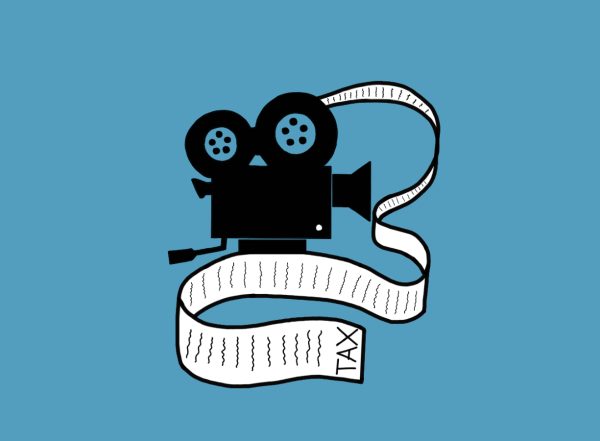
The film industry is an ever-changing environment of content, though not without fundamental flaws. For over 129 years, film remained a forum of artistic innovation — but in the world of show business, business tends to take priority over the show itself.
In November 2023, media conglomerate Warner Bros. Discovery decided to scrap the film “Coyote vs. Acme,” much to the public’s ire. Unlike other canceled pieces of media, which often get shut down midproduction or shortly after being greenlit, “Coyote vs. Acme” was a finished film. It had also test screened several months prior to cancellation, with very high ratings to boot.
Many have rightfully asked why a finished film with reputable scores had its plug pulled in the first place. The reason reveals a major problem with how Warner Bros. and other studios operate. Due to unsatisfactory earnings in the third fiscal quarter of 2023, CEO David Zaslav elected to discard “Coyote vs. Acme” in order to qualify for a tax write-off, according to IndieWire.
As backlash against Zaslav and WBD ensued, an unfortunate truth became apparent: the film industry itself often inhibits art. As a media company, WBD is a corporation first and a studio second. It prioritizes revenue over the art their workers create. If a piece of artwork can be sold, it will inevitably be treated as a commodity — and as long as studios treat media this way, artists will never truly own or control their work.
The countless hours of labor dedicated by directors, writers, actors, editors and VFX artists are of no concern to the studio executives they work for; their only priority is that of a product and whether or not it can be profited from. Warner Bros. spokespeople may claim that they have “tremendous respect” for those responsible for creating “Coyote vs. Acme,” but it is treated as a mere item to be sold at the end of the day.
For a short period of time, WBD planned to do exactly this, offering to sell “Coyote vs. Acme” to another media company. They have since decided to shelve the project for good. Despite the labor put into a finished film with good preliminary ratings, the only concern is that of capital and whether or not it can be reaped from the distribution of artwork.
It is a disservice to the labor and creative visions of the team behind “Coyote vs. Acme” to both cancel their project post-screening and prevent anyone else from buying the rights to the film. Avaricious executives, whose appreciation for media seems to be driven primarily by its function as marketable intellectual property, disservice creativity by banishing the film to the shelves of obscurity — the work deserves better.
Plainly put, the situation at hand is a frightening one. Zaslav’s decision reveals that people working for media companies neither own their art nor its fate. Studio executives have debased the artistic process of moviemaking, taking the power out of the creator’s hand and placing it in that of the businessman running the show.
It is my firm belief that art cannot thrive unless artists own the means of production and distribution, lest more projects fall victim to the same fate as that of “Coyote vs. Acme.” Unless they have control over their work, any piece of media runs the risk of being erased by whichever corporation owns the rights to it.
We deserve to live in a world where art can be created for art’s sake, and where it can be owned and distributed by creators without risk of destruction. To bring such a future about, we need to stand with artists and their right to the means of their work. By supporting local artist unions and labor unions in the entertainment industry, we can help ensure that the future of art lies in the hands of the people.


